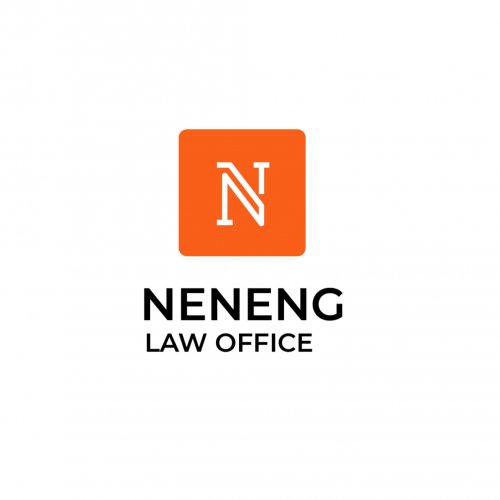Best Lawsuits & Disputes Lawyers in Cameroon
Share your needs with us, get contacted by law firms.
Free. Takes 2 min.
Or refine your search by selecting a city:
List of the best lawyers in Cameroon
About Lawsuits & Disputes Law in Cameroon
Lawsuits and disputes in Cameroon are governed by a mix of civil law, influenced by the French legal system, and common law, reflecting British legal principles. This dual legal system caters to the diverse cultural heritage of the country's regions. Litigation can involve various areas including contract disputes, property claims, personal injury cases, and more. Understanding the local legal framework and the applicable procedures is crucial for anyone involved in a legal dispute in Cameroon.
Why You May Need a Lawyer
Legal disputes can be complex and overwhelming, prompting the need for professional legal assistance. You may require a lawyer in situations such as:
- Contractual disagreements where terms or performance are in question.
- Property disputes involving ownership, boundaries, or tenancy issues.
- Family law matters including divorce and child custody disagreements.
- Employment-related disputes, including wrongful termination or workplace harassment.
- Personal injury claims arising from accidents or negligence.
A lawyer can provide critical advice, represent you in court, and help navigate the nuances of the legal system.
Local Laws Overview
Cameroon's legal landscape in terms of lawsuits and disputes involves key elements such as:
- Civil Procedure Code: Regulates the rules and procedures for civil court cases, including evidence presentation and trial processes.
- Common Law & Customary Law: Depending on the region, disputes might be resolved under customary laws, particularly in rural areas, or common law practices prevalent in English-speaking regions.
- Alternative Dispute Resolution (ADR): Mediation and arbitration are increasingly used to settle disputes outside of court, often seen as less adversarial and more expedient.
- Statutory Laws and Regulations: Various statutes regulate specific sectors and disputes, such as the Labor Code for employment issues or the Land Tenure Law for property disputes.
Frequently Asked Questions
What are the different types of lawsuits available in Cameroon?
Types of lawsuits can include civil actions, criminal cases, administrative cases, and commercial disputes, each subject to different procedural rules.
How does one initiate a lawsuit in Cameroon?
To initiate a lawsuit, a plaintiff files a complaint with the appropriate court, serving the defendant with a summons and affording them an opportunity to respond.
What is the role of customary law in disputes in Cameroon?
Customary law plays a significant role, especially in rural communities, where it governs personal status, family matters, and land disputes, often within the framework of local tribunals.
Can disputes be settled outside of court in Cameroon?
Yes, Alternative Dispute Resolution methods like mediation and arbitration are widely encouraged to resolve disputes without resorting to litigation.
How long does it take to resolve a lawsuit in Cameroon?
Resolution times vary depending on the complexity of the case, court workload, and whether the case is contested or settled. Some cases can take months, others years.
What legal costs are involved in initiating a lawsuit?
Costs can include court fees, attorney fees, and expenses for gathering evidence. Parties should be prepared for these costs and discuss them upfront with their lawyer.
Can foreigners file lawsuits in Cameroon?
Yes, foreigners can engage in legal proceedings in Cameroon, granted they adhere to the local procedural requirements and possibly secure appropriate legal representation.
What should I do if I receive a court summons?
Upon receiving a summons, it’s imperative to seek legal counsel immediately to understand the implications and prepare a defense or settlement strategy.
Are there time limits for filing lawsuits?
Yes, Cameroon law imposes statutes of limitation that set deadlines for filing different types of lawsuits. Missing these deadlines can bar claims permanently.
What is the enforcement process for court judgments?
Enforcement involves actions like seizing assets, garnishing wages, or compelling compliance with a court’s order, which the winning party can initiate after obtaining a favorable judgment.
Additional Resources
You may find the following resources helpful:
- Ministry of Justice: Provides official guidance and frameworks regarding legal processes (consult official publications and communications).
- Local Bar Associations: Offer databases of qualified legal professionals and can direct you to specialized lawyers.
- Non-Governmental Organizations (NGOs): Some NGOs offer legal aid and advice, particularly for underrepresented or disadvantaged populations.
- Community Legal Clinics: Provide legal advice and support, often free or at a minimal cost.
Next Steps
If you need legal assistance with a lawsuit or dispute in Cameroon, consider the following steps:
- Identify Your Issue: Clearly define the nature and scope of your legal dispute or concern.
- Consult a Lawyer: Choose a lawyer experienced in the area relevant to your issue, ensuring they are well-versed in Cameroonian law.
- Gather Documentation: Collect all relevant documents and evidence related to your case to share with your legal counsel.
- Explore ADR Options: Discuss with your lawyer whether alternative dispute resolution methods are viable for your situation.
- Prepare for Litigation: If proceeding to court is necessary, ensure you’re prepared for the process, financially and emotionally, with guidance from your lawyer.
Engaging a knowledgeable lawyer early can greatly enhance your understanding and handling of a dispute in Cameroon.
Lawzana helps you find the best lawyers and law firms in Cameroon through a curated and pre-screened list of qualified legal professionals. Our platform offers rankings and detailed profiles of attorneys and law firms, allowing you to compare based on practice areas, including Lawsuits & Disputes, experience, and client feedback.
Each profile includes a description of the firm's areas of practice, client reviews, team members and partners, year of establishment, spoken languages, office locations, contact information, social media presence, and any published articles or resources. Most firms on our platform speak English and are experienced in both local and international legal matters.
Get a quote from top-rated law firms in Cameroon — quickly, securely, and without unnecessary hassle.
Disclaimer:
The information provided on this page is for general informational purposes only and does not constitute legal advice. While we strive to ensure the accuracy and relevance of the content, legal information may change over time, and interpretations of the law can vary. You should always consult with a qualified legal professional for advice specific to your situation.
We disclaim all liability for actions taken or not taken based on the content of this page. If you believe any information is incorrect or outdated, please contact us, and we will review and update it where appropriate.
Browse lawsuits & disputes law firms by service in Cameroon
Cameroon Attorneys in related practice areas.
Browse lawsuits & disputes law firms by city in Cameroon
Refine your search by selecting a city.











